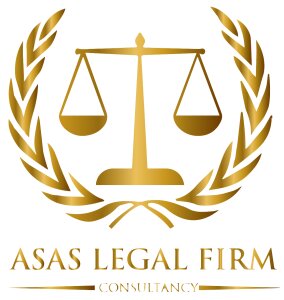Best Conveyancing Lawyers in Egypt
Share your needs with us, get contacted by law firms.
Free. Takes 2 min.
Free Guide to Hiring a Real Estate Lawyer
Or refine your search by selecting a city:
List of the best lawyers in Egypt
About Conveyancing Law in Egypt
Conveyancing in Egypt refers to the legal process involved in the transfer of property ownership from one party to another. This includes buying and selling real estate such as apartments, houses, land, and commercial properties. The process is governed by a complex framework of national and local laws, notaries, and government agencies. Due diligence, contract drafting, and the official registration of title deeds are significant steps in the Egyptian conveyancing procedure. Ensuring a legitimate transfer and securing legal ownership are both essential and regulated aspects under Egyptian law.
Why You May Need a Lawyer
Conveyancing transactions are often intricate, involving a variety of legal documents and procedures. People may need a lawyer for several reasons:
- To verify property ownership and ensure the property is free from encumbrances or legal disputes.
- For preparing and reviewing sales contracts to ensure your interests are fully protected.
- To navigate the official land registration process, which is essential for establishing legal ownership.
- If you are a foreigner or non-resident dealing with additional legal considerations and restrictions.
- To manage issues such as inheritance, gifts, or transfer between family members.
- For litigation or dispute resolution if problems arise during or after the transaction.
- To advise on local taxes, fees, municipal regulations, and compliance with governmental authorities.
Local Laws Overview
Egyptian conveyancing law is derived from Civil Law principles, with significant requirements concerning property registration. Here are key aspects:
- Title deed registration is mandatory for the legal recognition of property ownership. Registration takes place through competent real estate registration offices (known as “El Shahr El Aakary”).
- All sales contracts must be concluded in writing and typically require notarization.
- Property can have restrictions or encumbrances - all of which should be identified before completing a purchase.
- Foreign ownership of real estate is subject to specific limitations and must comply with applicable government procedures and thresholds.
- There are specific taxes, such as stamp duty and registration fees, applicable during the conveyancing process.
- Inheritance and succession laws may impact property transfers, particularly in cases of intestacy or where heirs are involved.
- Municipal and planning permissions should be checked, particularly for new developments or agricultural land.
Frequently Asked Questions
What documents are needed to transfer property ownership in Egypt?
The main documents include a valid title deed, proof of identity for both parties, the sales contract, tax clearance certificates, and documentation showing the property is free from encumbrances.
Is it necessary to register property after buying it?
Yes. Registration with the Real Estate Registration Office is required for legal ownership. Without registration, ownership may be disputed or not recognized by authorities.
Can foreigners purchase property in Egypt?
Foreigners can purchase property, but there are restrictions on the number and type of properties, as well as additional approvals required from relevant ministries.
How long does the conveyancing process take in Egypt?
The process duration varies depending on the complexity of the case, completeness of documents, and governmental processing times. On average, it can take several months to finalize property registration.
What are the costs involved in conveyancing?
Costs typically include legal fees, registration fees, stamp duties, taxes, and payments to notaries. These should be clarified and agreed upon with the lawyer beforehand.
What risks are involved if I do not use a lawyer?
Without a lawyer, buyers risk purchasing disputed property, incomplete ownership transfer, fraudulent transactions, or missing important legal steps such as proper registration.
Can property in Egypt be owned jointly?
Yes. Multiple parties, including family members or business partners, can jointly own property. The share of each party should be clearly stated in the official records.
What happens if a property is not properly registered?
The lack of registration may mean the buyer does not have full legal ownership, and third-party claims can arise. It may also be difficult to sell or mortgage the property in the future.
Are there special procedures for inheriting property in Egypt?
Inheritance is governed by local succession laws, which may depend on religion and nationality. Official inheritance documentation and possibly a succession certificate are required to transfer ownership.
Who can provide official property registration in Egypt?
Official property registration is performed by the Real Estate Registration Office (“El Shahr El Aakary”) under the Ministry of Justice.
Additional Resources
If you are seeking more information or need official services related to conveyancing in Egypt, the following resources can be helpful:
- The Real Estate Registration Office (“El Shahr El Aakary”) - for title deed registration and official records
- Ministry of Justice - for legislation updates and regulations pertaining to conveyancing
- Egyptian Bar Association - for finding qualified legal professionals specializing in real estate
- Municipal and local planning authorities - for zoning and usage regulations
- Notary Public Offices - for document authentication and notarization
Next Steps
If you are planning to buy, sell, or transfer property in Egypt, consider the following steps:
- Start by gathering all relevant property documents, including any previous title deeds and ownership records.
- Contact a qualified lawyer who specializes in Egyptian conveyancing to discuss your situation and objectives.
- Request a review of property records and registration history to ensure clear title and absence of encumbrances or disputes.
- Have your lawyer draft or review the sales contract and assist with documentation for tax and fee payments.
- Arrange for notarization and registration of the transfer at the Real Estate Registration Office.
- Retain copies of all finalized documents and verification of successful registration.
- If you encounter disputes or require clarification on inheritance, succession, or foreign ownership, your lawyer can guide you through the appropriate legal processes.
For complex or high-value transactions, the involvement of a specialized lawyer and consultation with relevant government offices are strongly recommended to protect your legal and financial interests.
Lawzana helps you find the best lawyers and law firms in Egypt through a curated and pre-screened list of qualified legal professionals. Our platform offers rankings and detailed profiles of attorneys and law firms, allowing you to compare based on practice areas, including Conveyancing, experience, and client feedback.
Each profile includes a description of the firm's areas of practice, client reviews, team members and partners, year of establishment, spoken languages, office locations, contact information, social media presence, and any published articles or resources. Most firms on our platform speak English and are experienced in both local and international legal matters.
Get a quote from top-rated law firms in Egypt — quickly, securely, and without unnecessary hassle.
Disclaimer:
The information provided on this page is for general informational purposes only and does not constitute legal advice. While we strive to ensure the accuracy and relevance of the content, legal information may change over time, and interpretations of the law can vary. You should always consult with a qualified legal professional for advice specific to your situation.
We disclaim all liability for actions taken or not taken based on the content of this page. If you believe any information is incorrect or outdated, please contact us, and we will review and update it where appropriate.
Browse conveyancing law firms by city in Egypt
Refine your search by selecting a city.
















